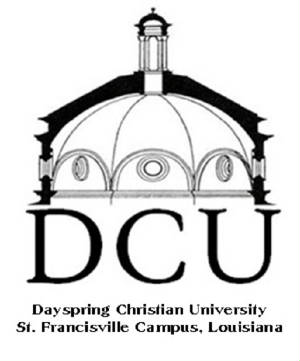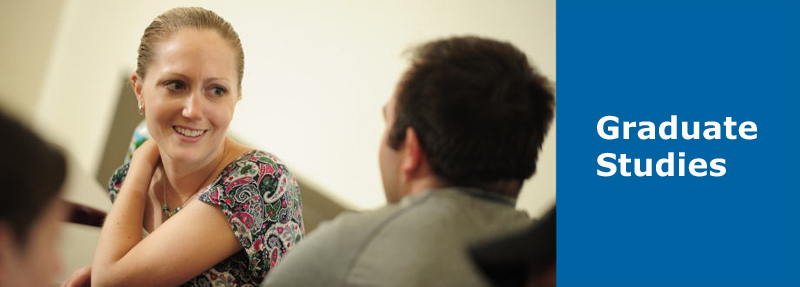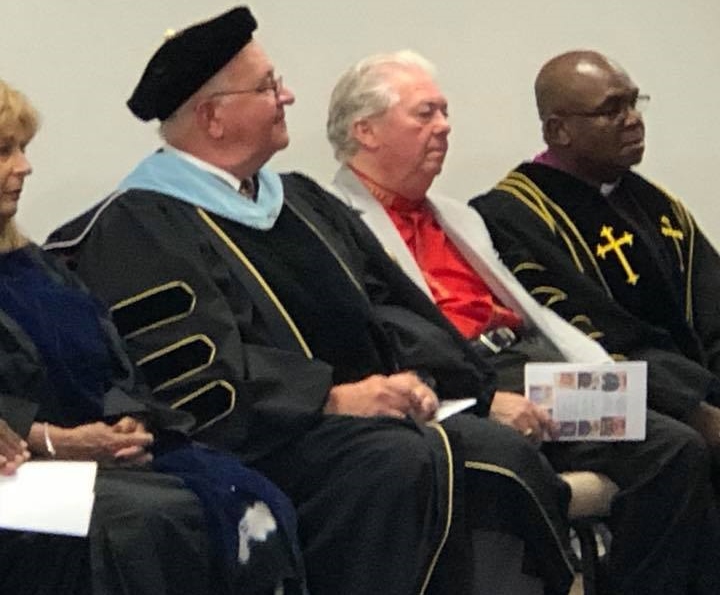|



NEW
DEGREES OFFERED BY DCU – 2014
Effective immediately,
Dayspring Christian University, Saint Francisville, Louisiana, has begun to
offer 3 new degree sets. DCU will begin to offer classes immediately for these
new degrees. Please
see the list of new
offerings. DCU
consortium schools may begin to offer the several degrees after approval from
the Home office in Mississippi.
Associate
of Human Services Counseling (Non-Clinical Biblical Approach) (60 credit hours)
Bachelor
of Human Services Counseling (Non-Clinical Biblical Approach) (120 credit hours)
Master
of Human Services Counseling (Non-Clinical Biblical Approach) (46 credit hours)
Doctor
of Human Services Counseling (Non-Clinical Biblical Approach) (39 credit hours)
Non-Clinical
Counseling
A
non-clinical
counselor can practice with a minimum of a bachelor’s degree, but many return
for their master’s to provide more comprehensive experience to those they’re
working for. Non-clinical work may incorporate therapy, public or private
organizations, case management, administration, and more. Many times
non-clinical counselors work on counseling and helping their clients with
whatever issues they may be having. This can range from working with
individuals to secure a new job, to coordinating rehabilitation programs, and
more. This typically will have you working with clients on more of a consulting
basis, compared to a clinical setting, which will be more comprehensive in
services. (Some
information stated here is adopted from the different seminaries and colleges
to explain our similar degree offering).


BACHELOR OF
RELIGIOUS SCIENCE IN HUMAN SERVICES
& BACHELOR
OF HUMAN SERVICES COUNSELING DEGREE
PROGRAMS
Curriculum
|
Counseling Concentration
|
15 crs
| |
HSV301 Interviewing Methods
Close
HSV301
Interviewing Methods – 3 Credits
This course provides an opportunity to learn
basic communication skills
and interviewing techniques essential for working with people. An emphasis is
placed on developing skills in listening, intake, assessment and evaluation,
referral and report writing. Case studies will be used to explore typical
presenting problems and appropriate responses.
|
3 crs
| |
HSV303 Introduction to Counseling
Close
HSV303
Introduction to Counseling – 3 Credits
This course provides an introduction to the basic
principles, skills,
methods and techniques employed in the counseling process. The focus is on
establishing rapport, developing a therapeutic alliance, assessment,
conceptualizing strategies for intervention, and the planning and delivering
counseling services. The course will also promote exploration into personal
values and professional ethics.
|
3
crs
| |
HSV309 Theories of Counseling
Close
HSV309
Theories of Counseling – 3 Credits
This course will introduce the student to
the basic concepts, theories
and approaches that are applied to human services counseling. Students will
compare and contrast the various theories that impact contemporary counseling
including analytic, experiential, relational, action-oriented and systems
approaches.
|
3 crs
| |
HSV330 Group Counseling
Close
HSV330
Group Counseling – 3 Credits
This course presents a theoretical foundation for
group process and
counseling techniques. Students are introduced to the skills and requirements
needed for effective group counseling including communication, leadership,
problem solving, decision-making, and establishing group membership, norms
and goals.
|
3
crs
| |
HSV368 Crisis Intervention
Close
HSV368
Crisis Intervention - 3 Credits
This course provides an introduction to the
concepts and strategies of
crisis theory and practice carried out in a social-psychological and cultural
framework. Effective crisis management is explored to learn how people feel,
think, and behave during periods of crisis, and what strategies and resources
are available to them.
|
3 crs
|
|
Criminal Justice Concentration
|
15 crs
| |
CRJ101 Introduction to Criminal
Justice
Close
CRJ101
Introduction to Criminal Justice - 3 Credits
The student will be introduced to the American
Criminal Justice System
from the perspective of the criminal justice professional. The course
examines the historical development and role of the police, prosecution,
corrections, probation, parole, and rehabilitation.
|
3 crs
| |
CRJ103 Introduction to Corrections
Close
CRJ103
Introduction to Corrections - 3 Credits
This course studies the history of corrections,
including imprisonment
and other forms of punishment, both institutional and non-institutional. The
philosophy and rationale for various sentencing alternatives are considered.
|
3
crs
| |
CRJ331 Community Corrections
Close
CRJ331
Community Corrections - 3 Credits
This course surveys the origins and development
of contemporary
practices in probation, parole, and other forms of community corrections,
including the impact of these practices on other elements of the criminal
justice system.
Prerequisite: CRJ103.
Prerequisite: CRJ103
|
3 crs
| |
Criminal
Justice Elective
|
3
crs
| |
Criminal
Justice Elective
|
3 crs
|
|
Human Services Management Concentration
|
15 crs
| |
| |
MGT105 Principles of Management
Close
MGT105
Principles of Management - 3 Credits
This course is an introduction to the principles
of management
examining their application in public and private, profit and non-profit
organizations. Students will explore the areas of employee motivation, group
behavior, leadership, strategic planning, organizational design, and career
opportunities. Fundamental concepts of management, effective communication
competency, ethical dilemmas faced by managers and corporate social responsibility
will be explored.
|
3
crs
| |
MGT201 Human Resource Management
Close
MGT201
Human Resource Management - 3 Credits
This course includes the presentation, analysis,
and discussion of the
specific functions of a Human Resources Department, including human relations
knowledge and skills vital to the success of any Human Resources manager.
Students will explore the standards of performance that are expected of
managers, subordinates, and the organization with a special emphasis on the
supportive relationships needed between employees and their organizations.
This course also will explore a number of contemporary and controversial
issues related to Human Resource Management.
Prerequisite: MGT105
Prerequisite: MGT105
|
3 crs
| |
MGT350 Public Management
Close
MGT350
Public Management - 3 Credits
This course studies the management of public organizations/government
at the local, state, and federal levels. Emphasis is on the transferability
of traditional business management skills to the public sector. There is
discussion of evolving career opportunities with emphasis on the variety of
educational programs in public management.
Prerequisite: MGT105.
Prerequisite: MGT105
|
3
crs
| |
MGT405 Organization Behavior
Close
MGT405
Organizational Behavior - 3 Credits
This course includes the study of individual
and small group behavior
in organizations and the interpretation of this behavior in the context of
the managerial environment. Students will explore the nature of such concepts
as influence, power and control, attitudes, communication, conflict, and
interpersonal relations as a means of understanding of the dynamics of group
behavior.
Prerequisite: MGT105.
Prerequisite: MGT105
|
3 crs
| |
MGT Elective
|
3
crs
|
|
Psychology - Health, Education and Community
Services Concentration
|
15 crs
| |
PSY101 Fundamentals of Psychology I
Close
PSY101
Fundamentals of Psychology I - 3 Credits
This course examines the nature of psychology
as a social and
behavioral science. It surveys fundamental areas in behavior including
research in psychology, the brain and behavior, learning, human development
and socialization, intelligence, personality, health psychology, and social
psychology.
|
3 crs
| |
PSY102 Fundamentals of Psychology II
Close
PSY102
Fundamentals of Psychology II - 3 Credits
This course is a continuation of the concepts introduced
in PSY101. It
surveys such areas as sensation and perception, states of consciousness,
memory, motivation and emotion, thinking and language, psychological
disorders, and treatment of psychological disorders.
Prerequisite: PSY101.
Prerequisite: PSY101
|
3
crs
| |
PSY306 Abnormal Psychology
Close
PSY306
Abnormal Psychology - 3 Credits
This course examines the major theories of
psychopathology. For each
theory treated, consideration is given to the definition of abnormality,
supportive research data, classification systems, and suggested intervention
strategies.
Prerequisite: PSY101 and Junior class standing
Prerequisite: PSY101 and Junior class standing
|
3 crs
| |
PSY201 Child Development
Close
PSY201
Child Development - 3 Credits
This course emphasizes the psychological
development of the child from
birth to adolescence. Consideration is given to data, theories, and methods
of studying child behavior. Emphasis is placed upon the general
characteristics of various stages of development and upon general
determinants of the developmental process.
Prerequisite: PSY101
|
3
crs
| |
PSY260 Educational Psychology
Close
PSY260
Educational Psychology - 3 Credits
This survey course introduces students
to the ways in which
psychological aspects of the learning process are investigated and applied.
Among the topics addressed are: research in educational psychology; student
characteristics; applications of psychological theories to the development of
instructional techniques; evaluating student performance; and special
education.
Prerequisite: PSY101
|
3 crs
|
|
Sociology Health & Community Services
Concentration
|
15 crs
| |
SOC101 Principles of Sociology
Close
SOC101
Principles of Sociology - 3 Credits
This course is an introduction to the basic
concepts in Sociology and
an analysis of culture, socialization, stratification, social organization,
class, social interaction, social change, and conflict.
|
3 crs
| |
SOC211 Sociology of Marriage and the
Family
Close
SOC211
Sociology of Marriage and the Family - 3 Credits
This course studies the family as an institution:
its structures,
problems, functions, and changing patterns in an historical and
cross-cultural perspective.
Prerequisite: SOC101.
Prerequisite: SOC101
|
3
crs
| |
SOC301 Social Problems
Close
SOC301
Social Problems - 3 Credits
This course is an in-depth study of the major
problems confronting
society. Some of the problems studied include crime and violence, sexual
inequalities and discrimination, health and illness, poverty and affluence,
population and pollution, and crises in the institutions of the family,
religion, economics, education, and the political system.
Prerequisite: SOC101.
Prerequisite: SOC101
|
3 crs
| |
SOC317 Alcohol & Drugs
Close
SOC317
Alcohol & Drugs - 3 Credits
This course is concerned with the use patterns,
distribution, and
social control of drugs and alcohol in modern society. Special emphasis is
given to heavy alcohol and drug usage and its impact on such areas as the
family, health, crime and delinquency, and work. Cross-cultural comparisons
are considered together with intra-cultural factors such as socio-economic
patterns, ethnicity, gender, and urbanization. The approach is
interdisciplinary and includes contributions from anthropology, social
psychology, as well as sociology.
Prerequisite: SOC101.
Prerequisite: SOC101
|
3
crs
| |
SOC324 Deviant Behavior
Close
SOC324
Deviant Behavior - 3 Credits
This course presents “deviance”
as endemic to society. Consideration is
given to processes of social labeling and stigmatization of “deviant” persons
and groups, the development of “deviant” identity, together with an
examination of the theories of social organization and disorganization which
seek to explain “deviant” behavior.
Prerequisite: SOC101.
Prerequisite: SOC101
|
3 crs
|
** Requires Prior Approval


Master of
Science in Human Services with a concentration in Clinical Counseling within
organizational Settings
Human
Services
Master’s
Program Objective: To enable you to advance your
human services skills and career options.
Program Description: Acquire conceptual, analytical,
and operational human service knowledge, which includes a solid understanding
of:
Human
behavior systems
History
Ethics
Major
intervention and treatment models
Problem
analysis
Organizational/managerial
knowledge
This
program includes three applied concentration tracks:
Alcohol
and Drug Counseling
Clinical
Counseling
Non-Profit
Management
Program Outcomes: Upon graduation, you will receive a Master’s
degree and be empowered to assume new or more advanced positions in the human
services field.
Curriculum
Overviews
The
Master of Science in Human Services is a 37-credit hour program consisting of
eight core courses and an additional 12 credits in Clinical Counseling within
Organizational Settings.
The
program includes a foundations course, the sociology of human services, a
graduate thesis, which serves as the program's capstone experience, and two
practicum field courses as recommended by the Council for Standards in Human
Service Education. The curriculum is as follows:
|
Core Requirements
|
25 crs.
|
|
Courses
|
Credits
|
|
HSV501 Master of Science in
Human Services Preparatory Course
Close
HSV501
Master of Human Services
Preparatory Course - 0 Credits (Pass/Fail)
This course is designed as an introduction to the
MSHSV program in addition to providing an orientation to the process and
technology essential for success in the program. This course will help
develop critical thinking skills, professional graduate level writing skills,
and review APA writing rules necessary for graduate students to complete the
MSHSV program. The course will also be an introduction to quantitative and
qualitative methods in research and serve to satisfy the statistics course
requirement for admission to the MSHSV program. Additionally, the course will
also expose students to relevant ethical and multicultural considerations
necessary to be successful as a human service provider. This is a no-credit,
pass/fail course with no pre-requisites.
|
0
crs.
|
|
HSV502 Human Services
Ethics and Diversity
Close
HSV502
Human Services Ethics
and Diversity - 3 Credits
Consideration of theoretical and practical
standards for ethically dealing with individuals and information about them
in a multicultural framework within a variety of human service settings.
|
3
crs.
|
|
HSV504 Human Development
Through the Lifecycle
Close
HSV504
Human Development
through the Lifecycle - 3 Credits
Examination of theories that are important to the
study of lifespan development. Approaches to physical, intellectual,
emotional, and social development throughout the lifespan will be examined
with a focus on the influence of context and culture on human development.
|
3
crs.
|
|
HSV510 Human Services
Policy
Close
HSV510
Human Services Policy -
3 Credits
A current examination of the social and public
policies that impact the human service organization. The course will
address how human service organizations design, implement, and manage human
service programs in response to the political environment and changes in the
social environment.
|
3
crs.
|
|
HSV511 Human Service
Management
Close
HSV511
Human Service Management
- 3 Credits (To be offered beginning January 2013)
This course provides students with knowledge,
theory and technical skills in the administration of human service delivery
systems. Course content includes management theory, principles of
organization, planning, budgeting, fiscal responsibility, supervision and
human resource management.
|
3
crs.
|
|
HSV512 Applied Research
Methods in Human Services
Close
HSV512
Applied Research Methods
in Human Services - 3 Credits
This course presents an overview of frequently
used quantitative and qualitative research methods. It prepares students to
be critical consumers of scholarly social science research. It also examines
the ways in which social science research can inform daily practice in
various social service agencies.
Prerequisite: Completion of at least 21-24 credits
|
3
crs.
|
|
HSV593 Field Practicum I
Close
HSV593
Field Practicum I - 3
credits
A two-module field placement designed to provide
students with supervised human service experience in their particular areas
of specialization. In addition to working in two field settings for a total
of 360 hours, students are required to attend three online seminars for the
first module of each field practicum. You are also required to contact your
Academic Advisor prior to registering for these courses to insure that you
have taken the necessary steps to secure a field placement prior to beginning
these courses.
Prerequisites: Clinical Concentration: HSV520 or
HSV521 and HSV524; NPM: One core and one concentration course; A + D
concentration: One Core and HSV532.
and
HSV594 Field Practicum II
Close
HSV594
Field Practicum II - 3
credits
A two-module field placement designed to provide
students with supervised human service experience in their particular areas
of specialization. In addition to working in two field settings for a total
of 360 hours, students are required to attend three online seminars for the
first module of each field practicum. You are also required to contact your Academic
Advisor prior to registering for these courses to insure that you have taken
the necessary steps to secure a field placement prior to beginning these
courses.
Prerequisites: Clinical Concentration: HSV520 or
HSV521 and HSV524; NPM: One core and one concentration course; A + D
concentration: One Core and HSV532.
or
HSV595 Advanced Field Practicum I
Close
HSV595 and HSV596
Advanced Field Practicum
I and II – 3 credits each (total 6 credits)
This course provides future human services
managers, clinicians, and alcohol and drug treatment providers with the
opportunity to put human services theory and principles into practice. The
student will have the opportunity to learn by experience through a field
placement at an approved human services agency in the community. Also of
critical importance to the experience, the student will have an opportunity
to share with his/her instructor and peers in detail the opportunities and
challenges experienced at the practicum experience. A student who engages in
this practicum experience is afforded the opportunity to gain additional
practicum hours, which are invaluable in seeking employment in a human
service agency. The student is also more likely to be well rounded and a more
experienced clinician upon completion of the experience. Additionally, the
student will be more competitive when seeking practicum placements where
students (such as MSW or MA in Counseling Psychology) are competing with
practicum placements with non-human services programs that require additional
practicum hours. Each section (i.e., HSV 595 and HSV 596) requires a minimum
of 550 hours of on-site experience. HSV595 and HSV596 provide an alternative
to taking HSV593 and HSV594 and will be considered a course substitution.
Prerequisites: Clinical Concentration: HSV520 or
HSV521 and HSV524; NPM: One core and one concentration course; A & D
concentration: One Core and HSV532.
and
HSV596 Advanced Field Practicum II
Close
HSV595 and HSV596
Advanced Field Practicum
I and II – 3 credits each (total 6 credits)
This course provides future human services managers,
clinicians, and alcohol and drug treatment providers with the opportunity to
put human services theory and principles into practice. The student will have
the opportunity to learn by experience through a field placement at an
approved human services agency in the community. Also of critical importance
to the experience, the student will have an opportunity to share with his/her
instructor and peers in detail the opportunities and challenges experienced
at the practicum experience. A student who engages in this practicum
experience is afforded the opportunity to gain additional practicum hours,
which are invaluable in seeking employment in a human service agency. The
student is also more likely to be well rounded and a more experienced
clinician upon completion of the experience. Additionally, the student will
be more competitive when seeking practicum placements where students (such as
MSW or MA in Counseling Psychology) are competing with practicum placements
with non-human services programs that require additional practicum hours.
Each section (i.e., HSV 595 and HSV 596) requires a minimum of 550 hours of
on-site experience. HSV595 and HSV596 provide an alternative to taking HSV593
and HSV594 and will be considered a course substitution.
Prerequisites: Clinical Concentration: HSV520 or
HSV521 and HSV524; NPM: One core and one concentration course; A & D
concentration: One Core and HSV532.
|
6
crs.
|
|
HSV698 Capstone Research
Project I
Close
HSV698
Capstone Research
Project I - 2 credits
In this course, students will apply an action
research approach to the development of an applied research project proposal.
Students will be required to design practiced-based projects based on the
application of human services principles to specific real-life problems to
demonstrate theory applied to practice. Based on an “area of interests”
statement created at the culmination of HSV512 and a comprehensive literature
search, students will submit a research proposal for review and approval.
NOTE: No transfer credits are allowed for this course.
Prerequisite: HSV512
and 21-24 credits
|
2
crs.
|
|
HSV699 Capstone Research
Project II
Close
HSV699
Capstone Research
Project II — 2 credits
Students will apply an action research approach to
the development of an applied research project proposal. Students will be
required to design practiced-based projects based on the application of human
services principles to specific real life problems to demonstrate theory
applied to practice. Based on work completed in HSV 698, students will
complete their applied research project by creating and submitting remaining
aspects of the project including the gathering data section, data analysis
and interpretation section, findings and implications leading towards action
section, reference section, abstract section, first rough draft, and the final
submission of the completed project. Students are required to have
successfully completed HSV 698 before completing this course. NOTE: No
transfer credits are allowed for this course.
Prerequisite: HSV698
Prerequisite: HSV698
|
2
crs.
|
|
|
|
Master of
Science in Human Services concentration
Clinical Counseling within Organizational Settings
|
12 crs.
|
|
Courses
|
Credits
|
|
HSV520 Theories of
Counseling
Close
HSV520
Theories of Counseling -
3 Credits
This course provides an overview of counseling
theory and fosters the development of basic counseling skills. The focus is
establishing a rapport, developing a therapeutic alliance, and
conceptualizing strategies for intervention. The clinical application of
theory will be explored through case studies, understanding research, and
class discussions.
|
3
crs.
|
|
HSV521 Family Systems
Theory
Close
HSV521
Family Systems Theory -
3 Credits
Introduces the student to the field of family
therapy and systems thinking. The student learns the skills necessary to
begin clinical work with a family. Includes the major theoretical approaches
to family intervention required to conceptualize, assess, and treat family
systems.
|
3
crs.
|
|
HSV522 Group Therapy
Close
HSV522
Group Therapy - 3
Credits
This course presents a theoretical and
experiential overview of group processes and counseling techniques. Students
will be exposed to the skills and characteristics required to facilitate
cognitive, emotional and behavioral change in group settings. Students
will also learn about the various populations served and presenting problems
addressed by group approaches.
Prerequisite: HSV520 and/or HSV521.
Prerequisite: HSV520 and/or HSV521
|
3
crs.
|
|
HSV524 Psychopathology
and Psychological Assessment
Close
HSV524
Psychopathology and
Psychological Assessment - 3 Credits
Students will explore the emotional, cognitive,
somatic, and behavioral symptoms of mental disturbances. This course
includes the introduction of testing and measurement devices that emphasizes
clinical assessment applications.
Prerequisite: HSV520 or HSV521
Prerequisite: HSV520 or HSV521
|
3
crs
|
|
|
|
Grand Total
|
37 crs.
|
|
|
|
|
|
Additional
Master of Science in Human Services Electives in Professional Counseling
|
Optional
|
|
Courses
|
Credits
|
|
HSV552
Professional & Ethical Orientation to Counseling
Close
HSV552
Professional and Ethical
Orientation to Counseling - 3 Credits
This course provides students with a realistic
view of several critical issues which counselors in the field of human
services encounter, in addition to providing best practices in addressing
these dilemmas. Human service professionals often face ethical issues such as
professionalism, aspirational ethics, decisions making, mandated reporting,
crisis intervention and/or legal issues on a daily basis. Professional
practice in a multicultural society, client rights and responsibilities will
also be explored, in addition to confidentiality, privileged communication,
record keeping, and other key issues that counselors are also addressed.
Prerequisite: Either (a) 21-24 completed hours of
graduate coursework in the Post University MSHSV graduate program, or (b) a
comparable number of graduate coursework hours in a helping-related program
at another college or university.
|
3
crs.
|
|
HSV554
Multicultural Issues in Human Services
Close
HSV554
Multicultural Issues in
Human Services - 3 Credits
This course provides students with knowledge in
the ways in which issues of multiculturalism can affect human services
delivery. Course content includes examinations of oppression, discrimination,
sexism, and other forms of prejudice, and their influence on the delivery of
human services to culturally diverse and oppressed communities.
Prerequisite: Either (a) 21-24 completed hours of
graduate coursework in the Post University MSHSV graduate program or (b) a
comparable number of graduate coursework in a helping-related program at
another college or university.
|
3
crs.
|
|
HSV556
Career Counseling, Appraisal, and Development
Close
HSV556
Career Counseling,
Appraisal, and Development - 3 Credits
This course provides students with an introduction
to the history of the career development practice. The course also explores
the process of career counseling, assessments, and information dissemination.
Students will also become familiar with the process of helping individuals
take action in preparing for work in our present society in terms of
employability skills and placement services. The course will also discuss the
process of creating career development programs in both the public and
private sector in addition to exploring trends and issues in the labor market
and job search process.
Prerequisite: Either (a) 21-24 completed hours of
graduate coursework in the Post University MSHSV graduate program, or (b) a
comparable number of graduate coursework hours in a helping-related program
at another college or university.
|
3
crs.
|
|
HSV558
Testing and Appraisal of Individuals and Groups in Human Services
Close
HSV558
Testing and Appraisal of
Individuals and Groups in Human Services - 3 credits
This course provides students with an introduction
to psychological assessment measures commonly used individually or in group
settings in a variety of human service agencies. The course is designed to
provide students with information about test construction, administration,
scoring, and interpretation. An introduction to intellectual, emotional,
behavioral, and personality assessments for both children and adults will be
examined.
Prerequisite: Either (a) 21-24 completed hours of
graduate coursework in the Post University MSHSV graduate program or (b) a
comparable number of graduate coursework in a helping-related program at
another college or university.
|
3
crs.
|
The
university reserves the right to change or update the curriculum at any time.
The university will notify students of any changes officially through the
university website.
If
you’re interested in becoming a Licensed Professional Counselor: Licensure is a
professional process that varies from state to state. Please consult the
appropriate state agency to determine the specific requirements for licensure
in your state.
Doctor of Philosophy in Counseling and
Counselor Education – 58 Credit Hrs
Doctor of Human Services Counseling – 42
Credit Hours
Or
Complete the D.Hsc for 42 hours and move
into the Ph.D., C.C.E. for only an additional 20 Hours.
Courses
The Doctor of Philosophy in Counseling
and Counselor Education is designed to prepare graduates for academic
positions and other careers in Counselor Education or Rehabilitation
Counseling. Building on the entry level competencies of the master's degree in
counseling or rehabilitation counseling.
The doctoral program consists of
approximately 96 to 99 graduate course credits beyond the baccalaureate degree,
with an additional 9-15 dissertation credits. Students must complete a minimum
of 48 credits of course work (excluding dissertation) at Dayspring Christian
University. The doctoral program of study incorporates didactic and
experiential learning and includes a cognate area of study involving at least
nine semester credits, which are usually completed outside of the
department. The Doctor of Human Services requires less Credit hours but some of
the workload is the same.
In addition to meeting national
accreditation standards, our program claims special expertise in five
distinct areas. Students can expect unique opportunities, including conducting
research, in any or all of the following:
Clinical Supervision
Developing the knowledge and skills
necessary to train and supervise counselors and counselors-in-training, and to
teach supervision to others.
College Mental Health Counseling
Developing the knowledge and clinical
skills necessary to work within a college counseling context with students who present with a wide range of
developmental and mental health concerns.
Counseling People with Disabilities
Developing the knowledge and skills
necessary to ensure full participation of people with disabilities in all
aspects of living.
The Future Professoriate
Developing the knowledge and skills
necessary to assume academic, administrative, and professional leadership roles
related to the professoriate.
Social Justice and Urban Youth
Developing the knowledge, skills, and
awareness necessary to identify and confront the institutionalized forms of
discrimination which continue to perpetuate disparities in social, academic,
and career opportunities for urban youth.
The strengths of our doctoral program
are numerous. Current and past doctoral students have offered the following
comments on the quality of D.C.U.'s program:
Faculty who are recognized yet
student-focused
Multiple opportunities for clinical
supervision
Opportunities and support for developing
teaching skills DCU offered programs
Flexible policies allowing doctoral
students to use DCU support for summer courses
Encouragement and support to attend and
present at national conferences
Opportunities to develop research skills
as part of on-going research teams
The doctoral program at D.C.U. has
clearly defined prerequisites for entry into its program,and a carefully
designed (though adequately flexible) course of study for its students. Below
you will find information regarding the course work you must bring with you
into the program, as well as a detailed look at the classes required for this
degree.
Prospective doctoral students must
demonstrate that they have completed all the required course work in a master's
degree curriculum. Should new students enter the doctoral program with course
deficits, they will be able to complete such course work as part of the
doctoral program of study.
Required
doctoral courses in counseling:
|
COURSE #
|
COURSE TITLE
|
CREDITS
|
|
COU 876
|
Seminar
in Ecological Counseling
|
3
|
|
COU 874
|
Theory
and Practice of Clinical Supervision
|
3
|
|
COU 872
|
Advanced
Theory and Practice in Group Work
|
3
|
|
COU 878
|
Seminar
in Counseling Theory
|
3
|
|
COU 882
|
Seminar
in Professional Issues
|
3
|
|
COU 950
|
Doctoral
Internship
|
6-9
|
|
COU 860
|
Advanced
Practicum in Counseling
|
3
|
|
COU 910
|
Doctoral
Research Seminar
|
3
|
Doctoral students must complete a
minimum of 600 hours of internship
activity during their program of study. These hours may be distributed over a
number of semesters. Activities that are included in the internship include
teaching or co-teaching master's level courses in counselor education or
rehabilitation counseling, supervision of individual students in master's level
practical/internships in the programs, and/or counseling assignments in
university/school/agency settings. Each doctoral student's internship
experience will be planned with the advisor according to the student's prior
experience and career plan. Therefore, the weights for each activity may differ
across students.
The Research Seminar is open to all doctoral students. Its purpose is
two-fold:
to assist entry-level student movement
into a scientist-practitioner model by involving them in the research
apprenticeship and/or dissertation research planning and activity of the
advanced doctoral students
to provide advanced doctoral students a
setting in which they can examine and develop strategies for research topic
selection and proposal writing
Required
courses in statistics and research (choose one track):
|
COURSE #
|
COURSE TITLE
|
CREDITS
|
|
Sample Qualitative Research Methods Sequence
|
|
EDU 603
|
Introduction to Qualitative Reseach
|
3
|
|
EDP 647
|
Statistical
Thinking and Applications
|
3
|
|
EDU 810
|
Advanced Seminar in Qualitative Methods I
|
3
|
|
EDU 815
|
Advanced
Seminar in Qualitative Methods II
|
3
|
|
Sample Quantitative Research Methods Sequence
|
|
EDU 603
|
Introduction
to Qualitative Reseach
|
3
|
|
EDP 647
|
Statistical Thinking and Applications
|
3
|
|
EDP 791
|
Advanced
Seminar in Quantitative Research I
|
3
|
|
COU/EDU 886
|
Multivariate Research Methods
|
3
|
Required cognate (minor): 9-12 credits
An area of expertise will be established
with 9-12 credits of doctoral level course work. Course work for areas of
expertise will be determined by the student in consultation with the doctoral
advisor. Although most cognate areas will be completed outside the department
(e.g., behavioral psychology, cultural foundations, research, higher education
practices, human development, spirituality or women's studies), it is possible
to complete a cognate within the department (e.g., group work, clinical
supervision, school counseling, rehabilitation counseling).


|
